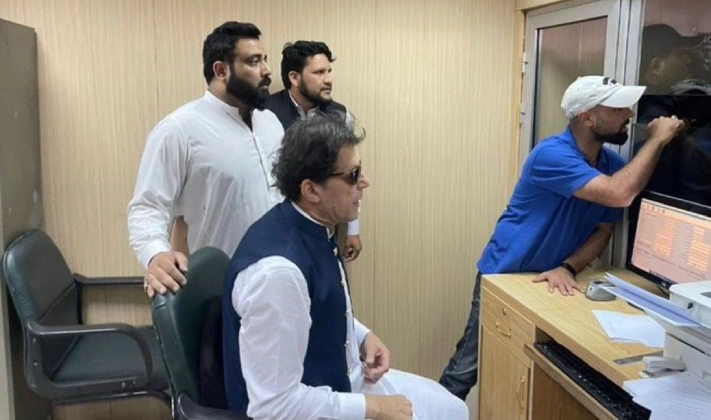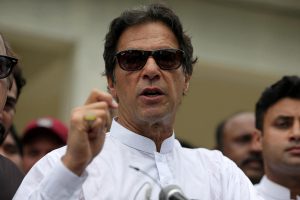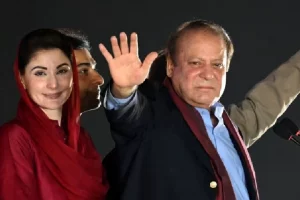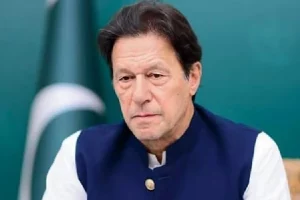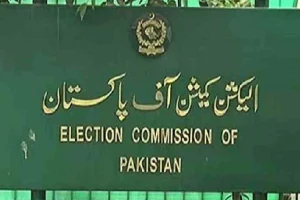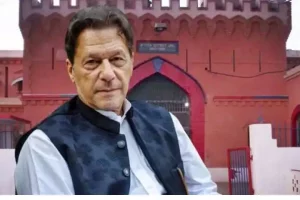The arrest of former Pakistan Prime Minister Imran Khan is a pivotal moment in the power struggle between the military and the leader of the Pakistan Tehreek-e-Insaf (PTI) party.
The move is fraught with risk though, as Khan exercises considerable street power, which could lead to a showdown with the armed forces. In the worst-case scenario, it could result in a bloodbath in the streets.
Today’s arrest caps a long-drawn-out tussle between the military and Khan. Though it is well-known that it was the military, led by former Army Chief, Qamar Javed Bajwa that brought Khan into power, it became amply clear that the former Prime Minister, after an initial honeymoon, had turned rogue.
At some point the military decided that enough-was-enough. Consequently, it did not stop, some would say even encourage, a no confidence motion against the PTI government, which led to Khan’s fall in April last.
A new dynamic panned out thereafter. Back in favour, the Pakistan Muslim League-Nawaz (PML-N), the party led by former Prime Minister Nawaz Sharif, exiled in London, had made peace with the military, earlier led by Gen. Bajwa and thereafter by Gen. Bajwa’s protégé Gen. Asim Munir. From the outside, it appeared that the game was to get the senior Sharif back to Pakistan, go for elections, and have the Sharif’s back in power in a military-friendly civilian government.
While the pieces were being moved on the political chess board, a lot was happening behind the scenes at a broader geopolitical level. Ousted rather unceremoniously from Afghanistan, the Americans were desperate to claw back their way into a position of some influence in the AfPak area. But Khan was a major obstacle, having shown his inclination to befriend China, and assiduously supporting Beijing’s China Pakistan Economic Corridor (CPEC). The Americans were therefore banking on the military to open the AfPak door for them, and Gen. Bajwa seemed to have obliged.
The jury is out on Pakistan’s exact role in the killing in Afghanistan of terror kingpin Ayman al Zawahiri in May 2022. But there are credible voices that suggest that Pakistan provided the air corridor for the American drone to fly and shred Zawahiri in Kabul with a Harpoon missile.
The US-Pak military track seemed to have moved fast thereafter, including Gen Bajwa’s visit to UK, Washington’s top ally, as the chief guest at the Sandhurst military parade. The Pakistanis also then decided to fully support Ukraine in its war against Russia—a US friendly move–with reports appearing at regular intervals of Pak military hardware supplies being flown across to Ukraine from Rawalpindi.
But Khan apparently continued to be major obstacle in US plans to impart greater balance in Pak foreign policy via the military. By all accounts, if elections were to held now, as demanded by Khan, it is likely that PTI may triumph, serving a huge setback to the Pakistani deep state and the Americans.
It is unsurprising that the Pak military through its media wing, the Inter Services Public Relations (ISPR) issued a statement against Khan, a day before his arrest.
The ISPR had said that for the last one year, Khan has been targeting officials of the military and intelligence agencies with insinuations and sensational propaganda.
“These fabricated and malicious allegations are extremely unfortunate, deplorable and unacceptable… We ask the political leader concerned to make a recourse to legal avenues and stop making false allegations. The institution reserves the right to take legal course of action against patently false and malafide statements and propaganda”.
The politico-military side having played its card today, the ball is in Khan’s court, with bloody street fights in Pakistan a distinct possibility.
Also Read: With Imran Khan’s dramatic arrest, clash between former PM and Army comes to a head






